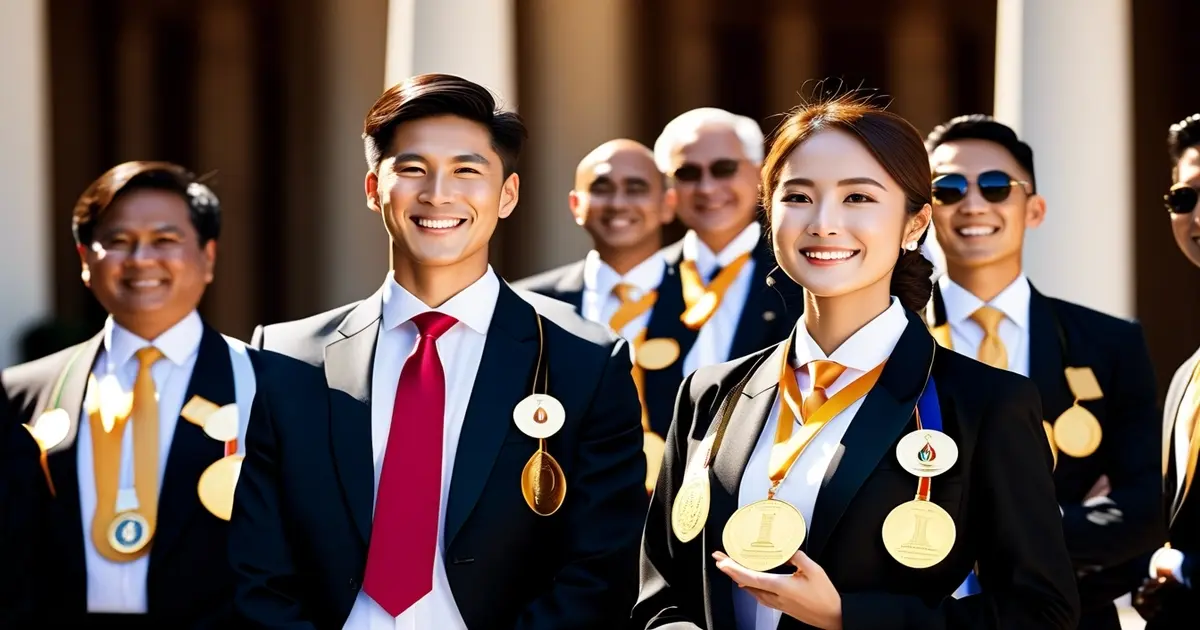Sports Agent vs Sports Lawyer: Choosing Your Career Path
Navigating the competitive realm of professional sports requires more than talent, hard work, and an attorney. Behind every successful athlete, a duo often plays a pivotal role off the field: the sports agent and the sports lawyer, usually doubling as an attorney. While both professionals, the sports attorney, and the personal sports lawyer, share the goal of advocating for the athlete's best interests, their responsibilities, expertise, and approaches within the sports law field differ significantly, highlighting the importance of a successful sports lawyer.
The sports agent focuses on securing lucrative contracts and endorsements, leveraging relationships within the industry to maximize an athlete's market value. Conversely, sports lawyers tackle legal issues, from contract negotiations to dispute resolutions, ensuring that all agreements comply with the law.
Understanding the distinct roles of a sports agent versus a sports lawyer is crucial for anyone aspiring to navigate their career in sports with confidence and legal savvy.
Table Of Contents
Key Takeaways
- Understanding the roles of sports agents and lawyers is crucial for athletes navigating their careers, with agents focusing on negotiations and endorsements while lawyers handle legal disputes and contract law.
- Athletes should seek a sports lawyer for legal advice and representation in disputes, emphasizing the importance of legal expertise in protecting their rights and interests.
- Hiring a sports agent is beneficial for career management, including contract negotiations and securing endorsements. This highlights the agent's role as a negotiator and advisor.
- Collaboration between sports agents and lawyers can maximize athletes' success, ensuring their legal and career interests are well-managed. Understanding the distinct paths to becoming a sports agent versus a sports lawyer reveals unique educational and professional requirements.
- Recognizing the critical distinctions between sports agents and lawyers helps athletes make informed decisions about who to include in their professional team, ultimately enhancing their career trajectory and financial security.
Defining Roles in the Sports Industry
Sports Agents
Sports agents are navigators of athletes' careers, steering them through contract negotiations, financial planning, and legal issues. They collaborate with a team of professionals, including financial advisors, lawyers, sports attorneys, and marketing experts. Sports attorneys aim to secure lucrative endorsement contracts for their athletes, ensuring their clients' financial success and stability within the competitive and time-sensitive sports law profession.
Athletes rely on agents and sports attorneys to handle the business side of their careers. This allows them to focus on their performance without worrying about the complexities of contracts and endorsements. The role of a sports agent is crucial in today’s highly competitive sports environment.
Sports Lawyers
Sports law in the United States encompasses various legal fields, including labor law, contract law, competition or antitrust law, and tort law. Key aspects also involve defamation and privacy rights. Sports lawyers specialize in these areas, providing legal counsel and representation to athletes, coaches, sports organizations, and other entities involved in the sports industry.
Their expertise is critical in navigating the legal challenges in professional sports. From negotiating contracts to defending clients against legal claims, sports lawyers are essential in protecting their clients.
Educational Paths
Becoming a sports agent or lawyer requires specific educational and licensing achievements. For sports agents, a degree in sports management or a related field often provides the foundation needed for this career. Many agents hold certifications or licenses from sports leagues or associations.
Conversely, sports lawyers must complete a rigorous path that includes obtaining a law degree and passing the bar exam in their jurisdiction. Specialized courses or experience in sports law can further enhance their qualifications.
Necessity in Sports
Both roles are indispensable in navigating the complex landscape of the sports industry. Sports agents and lawyers work hand-in-hand to ensure that athletes excel in their careers and receive fair treatment and protection under the law. Their combined efforts help athletes achieve career success and personal security.

The Legal Advocate in Sports
Athlete Protection
Sports attorneys, often known as sports lawyers or sports law attorneys, play a pivotal role in protecting athletes' rights and interests. These legal professionals leverage their deep understanding of contract law, intellectual property, and employment law to ensure athletes are treated fairly and justly.
Athletes rely on sports lawyers to navigate the complexities of contract negotiations, ensure favorable terms, and safeguard their careers. Beyond contracts, these attorneys defend athletes' intellectual property rights, such as image rights and endorsements, from unauthorized use or exploitation.
Legal Disputes
When disputes arise, whether regarding a breach of contract or doping allegations, sports lawyers step in as indispensable advocates for athletes. They represent players in various legal settings, from arbitration panels to courtrooms, fighting tirelessly to resolve conflicts in the athlete's favor.
The process involves meticulous preparation and a strategic approach to presenting evidence and arguments. Successful sports lawyers possess a profound knowledge of sports law and the ability to apply it effectively in high-pressure situations.
Compliance and Regulations
Another critical aspect of a sports lawyer's role is ensuring compliance with the rules and regulations set by sports governing bodies. This includes navigating the intricacies of eligibility rules, transfer regulations, and disciplinary procedures.
They advise athletes and sports organizations on operating within the legal frameworks established by these bodies. This prevents potential legal issues before they arise and helps maintain the integrity of sports competitions.
Sports Law Evolution
The field of sports law is continuously evolving, driven by new legal precedents and changes within the sports industry itself. Sports law specialists must stay abreast of these developments to provide effective counsel.
Many successful sports lawyers contribute to this evolution by participating in legal debates, writing for respected sports law platforms, and teaching future generations in sports law classes or departments. Their contributions ensure that the field adapts to new challenges and continues to protect the interests of athletes around the globe.
The Negotiator and Advisor
Lucrative Deals
Agents play a crucial role in securing lucrative contracts for their clients. They negotiate terms that offer financial gain and ensure the athlete's value is recognized in the marketplace. Through meticulous negotiation, agents secure endorsement deals that can significantly augment an athlete's income, making them pivotal in an athlete's financial success.
Agents leverage their expertise to navigate through complex contract negotiations. They ensure their clients receive the best possible terms, balancing salary, bonuses, and other benefits. Their ability to maximize earnings through contracts and endorsements underscores their indispensable role in an athlete' ’ career.
Financial Guidance
Beyond contract negotiations, agents are invaluable for their financial advice and career planning services. They guide athletes through investment options, helping them secure their financial future long after their sports careers have ended. This comprehensive support system allows athletes to focus on performance, knowing their financial health is expertly managed.
Agents assist clients in budgeting, saving, and investing wisely. They often collaborate with financial professionals to create a robust financial plan that suits each athlete's unique needs. This strategic planning ensures athletes are prepared for life both during and after their sports careers.
Industry Connections
The importance of industry connections cannot be overstated. Agents use their extensive networks to open doors for athletes, presenting opportunities that might otherwise be inaccessible. These connections are vital for securing endorsements, appearances, and even post-career opportunities within the sports industry or beyond.
Their deep understanding of the sports world allows agents to identify and pursue opportunities that align with their clients' career goals and values. Whether introducing athletes to brands for endorsements or negotiating media appearances, agents'‘ connections facilitate significant opportunities that extend an athlete's reach and influence.
Collaboration for Athlete Benefit
Legal Support
Athletes often navigate complex contracts and legal frameworks. The synergy between sports attorneys and agents ensures that athletes receive comprehensive guidance, protecting their interests on and off the field. Attorneys provide the legal expertise necessary to understand contract nuances, while agents offer insights into the sports industry.
Sports lawyers play a crucial role in identifying potential legal pitfalls in contracts. They ensure that agreements comply with the law, safeguarding an athlete's career longevity. This collaboration becomes particularly vital when athletes face legal challenges or disputes.
Career Management
The strategic partnership between sports agents and attorneys extends beyond legal advice and impacts athletes' career management. Agents and lawyers work together to create opportunities for athletes, negotiating endorsements and sponsorships that align with their career goals and personal values.
Agents leverage their network to secure lucrative deals, while attorneys ensure these agreements are fair and legally sound. This dual approach maximizes an athlete's earning potential and brand value, providing financial security and a platform to build their legacy.
Strategic Planning
Combining legal protection and strategic career management is instrumental in achieving success. Sports attorneys and agents collaborate to formulate long-term plans, considering both current opportunities and future risks.
This partnership facilitates a proactive approach to career development, allowing athletes to capitalize on peak performance years while preparing for life after sports. Focusing on immediate gains and enduring success ensures athletes benefit from a holistic support system.

Career Paths Explored
Education Paths
Sports agents and lawyers embark on distinct educational journeys, each tailored to their specialized roles within the athletic industry. Sports agents often possess a blend of formal education in sports management and hands-on experience in negotiation and athlete representation. They might start their careers with business, marketing, or sports management degrees.
Sports lawyers, on the other hand, require a more rigorous academic path. They must complete a bachelor's degree followed by law school and pass the bar exam to practice law officially. Specialization in sports law through courses or certificates further enhances their expertise, equipping them with knowledge of contracts, arbitration, and legal issues related to sports.
Professional Experience
Gaining relevant experience is crucial for both careers. Sports agents typically begin by interning at sports agencies or working closely with seasoned agents to understand the intricacies of contract negotiations and athlete management. Building a solid network within the sports community is also vital for their success.
Sports lawyers find value in internships at law firms focusing on sports law or legal departments of sports organizations. Their professional growth is marked by their ability to handle complex legal matters, including intellectual property rights, doping allegations, and contractual disputes.
Career Opportunities
The sports industry offers broad career opportunities for sports agents and lawyers. Agents can work independently, representing athletes across various sports, or join established agencies. Their roles may expand into brand management, public relations, and financial planning for athletes.
Sports lawyers can serve as in-house counsel for sports teams or leagues, work at law firms specializing in sports law, or even hold positions within international sports organizations like the International Olympic Committee (IOC). Their expertise is also sought after in academia and sports arbitration panels.
Success Stories
Prominent figures in both fields highlight the potential career trajectories available. For example, Drew Rosenhaus, a well-known sports agent, has had a significant impact by representing top NFL players and negotiating record-breaking contracts. His success underscores the importance of negotiation skills and an extensive network.
On the legal side, Richard McLaren's work investigating doping in international athletics showcases the critical role of sports lawyers in maintaining integrity within sports. His contributions have led to significant reforms and highlight the global influence a sports lawyer can possess.
Key Distinctions
Role Differences
Understanding each professional's primary role is crucial. Sports agents mainly focus on negotiating contracts and endorsements for athletes. They work to maximize an athlete's earnings and public image. On the other hand, sports attorneys handle legal matters. They advise on contracts but also deal with litigation, intellectual property, and other legal issues related to an athlete's career.
Sports agents are the go-to for brand deals and career advice. Sports lawyers step in when legal expertise is required.
Expertise Areas
The expertise of sports agents and sports lawyers differs significantly. Agents often have a background in sports management, marketing, or related fields. Their knowledge is more aligned with the commercial aspects of sports. Sports attorneys, however, have a legal education. They understand the intricacies of the law as it applies to the sports industry.
Agents build relationships with teams and brands. Lawyers navigate the legal system and ensure compliance.
Interests Protection
A key difference lies in how they protect their client's interests. Sports agents are driven by securing the best possible deals for athletes, which directly impacts their commission. Sports attorneys focus on protecting athletes' legal rights and ensuring fair treatment under the law. This distinction highlights their unique value in an athlete's career.
Agents aim to boost earnings and opportunities. Attorneys safeguard against legal pitfalls.
Misconceptions Clarified
There's a misconception that sports agents and attorneys are interchangeable. While both roles support an athlete's career, they offer different services based on distinct expertise and objectives. Recognizing these differences helps athletes decide who to hire for specific needs.
Both professionals play important roles but serve different purposes.
Closing Thoughts
Understanding the roles of sports agents and lawyers gives you a clear edge, whether you're an aspiring athlete or looking to carve a niche in the sports industry. Agents and lawyers play pivotal roles, yet their paths diverge significantly regarding responsibilities and objectives. Your career or representation can greatly benefit from knowing who does what, why, and how they can best serve your interests. This knowledge streamlines your journey in sports and ensures you're always a step ahead, legally and strategically.
Now's the time to take action. Reflect on what you've learned about sports agents and lawyers. Consider how this fits into your career goals or current needs. Whether choosing a path for yourself or seeking the best representation, remember, knowledge is power. Leverage it to your advantage, and don't hesitate to contact professionals who can guide you further. Your success story in sports begins with making informed decisions today.
Frequently Asked Questions
Related Post
Lawyer vs Doctor
Have you ever wondered what skills it takes to walk in the shoes of a lawyer, with their court advocacy, or a doctor, and what salary might come with those professions?
Read MoreEstate Planning Lawyer vs Trusts and Estates Lawyer
Have you ever wondered why navigating the maze of estate planning, with its court laws, executor duties, and invaluable guidance, feels so daunting?
Read MoreProsecutor vs Lawyer
Diving into the legal world can feel like navigating a labyrinth, especially when deciphering roles like those of prosecutors and lawyers.
Read MoreAttorney vs Lawyer
Have you ever been in a heated debate about the difference between an attorney and a lawyer? It's not just semantics; there's a real distinction that could affect your choice when seeking legal help.
Read MoreSports Lawyer
Have you ever wondered what stands between a promising athlete's career and the legal hurdles that could derail it? A sports attorney, often supported by sports law attorneys and other sports law practitioners, including a sports agent, plays a crucial role.
Read More





